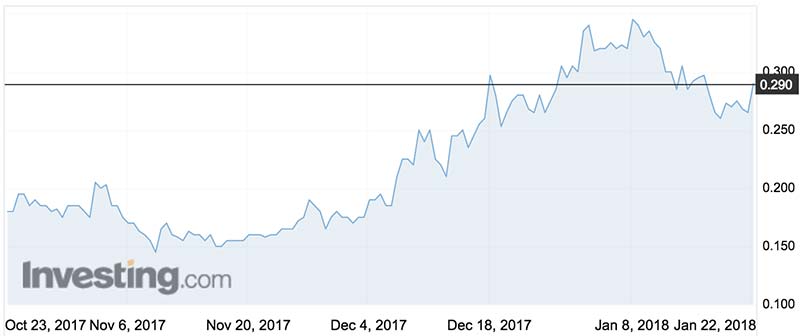Yojee says its first blockchain product is almost ready to go
Tech
Yojee is finally delivering on its long-awaited blockchain system, with early testing on a distributed ledger back office system complete.
The shares jumped 3c to 29.5c on the news — and were trading up 7 per cent at 28c at 11am AEDT Monday.
The business has until now provided only a machine learning-based software-as-a-service (SaaS) application to its logistics clients, which they use to manage their fleet and systems.
Managing director Ed Clarke says Yojee has been working on the blockchain backend system for “a while”.
Thanks to advances in the technology that have taken place over the last three to four months, they decided it was time to go ahead with integration into the SaaS (software as a service) product.
“It’s a system outside of the [main] product that helps run or add value,” Mr Clarke told Stockhead.

Customers can choose whether to use the new backend system or stick with the main product only — but many of Yojee’s bigger customers signed up so they could get access to the blockchain back office, he said.
“The way that we are using blockchain initially is to enable immutability, so you can’t mute any historical occurrences that happens in your database and in your company.
“That means you’re much less susceptible to hacking and information alteration.”
Mr Clarke cited the Maersk cyber attack last year which lost the company $200-300 million as an example of why using a distributed ledger to store company information is useful.
“Once they returned from [the hack], it was very difficult for them to prove how they database was at that point in time.”
Maersk was forced to ask customers spending billions of dollars in its shipping network to restore the information and servers as they were before the hack.
Yojee plans to release the blockchain product this quarter.
It has three areas of focus: